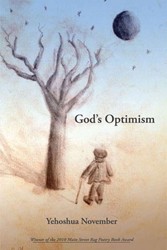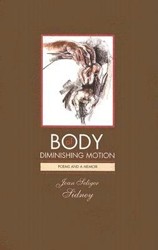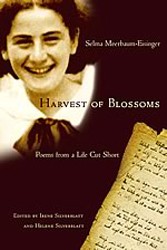In addition to being a philosopher, historian, philologist, and pioneer of the study of the Kabbalah and Jewish mystical texts, Gershom Scholem was a poet. He began writing poetry as a teenager and continued the practice until his mid-seventies, producing dozens of poems in a number of styles, though only two of them were published during his lifetime. Greetings from Angelus, a bilingual selection of Scholem’s verse, presents 21 of these poems in the original German, next to an airtight translation by Richard Sieburth.
Many of the poems in the collection show Scholem adhering to a utilitarian, didactic style that appears preoccupied with either conveying information or, in lighter tones, attempting to entertain. At best, this trawls in unexpected, exciting turns of phrase (“Honor your illusions / castles in the air!”), though his persistent rhyming can come across as idle, uninspired, and occasionally simple and nursery-like. For example, the content of “Media in Vita,” a verse composed in response to the 1929 Palestine riots, is noble, but the verse is less than: “I’m not fighting for any ‘cause’ / all I’m fighting for now is me/I stand the loneliest of guards / It takes courage to see what I see.” Other poets have more eloquently expressed the feeling of exhibiting a personal stand in response to external disorder without resorting to back-patting.
The most interesting poems in the collection abandon rhyme in favor of free verse, and focus on Scholem’s interactions with great thinkers and philosophers of his time. This should not be surprising; Scholem, after all, maintained correspondences throughout his life with many of the esteemed Hebrew poets of his age. He walked the Jerusalem streets with Haim Nahman Bialik, composed a sonnet in honor of his friend S.Y. Agnon (and presented him with a handwritten copy of the poem in honor of his seventieth birthday), and expressed admiration for the then-newer generation of Israeli poets, including Yehuda Amichai and Dalia Ravikovich. In personal poems that reflect his interest in communicating with his peers’ work, Scholem touches upon his appreciation for the writings of Franz Kafka, Walter Benjamin, and Ingeborg Bachmann.
Scholem’s poems strike the deepest chord when addressing the work he is most famous for: the study of esoteric Jewish texts. The poem “Vae Victis, or Death in Professoriate,” composed in honor of Scholem’s friend and colleague, Hans Jonas, opens with the line, “I threw myself into ancient books/I was awestruck by their signs/I spent too much time alone with them.” Such insights offer captivating glances into one of the most exploratory, prophetic Jewish minds of the twentieth century.





